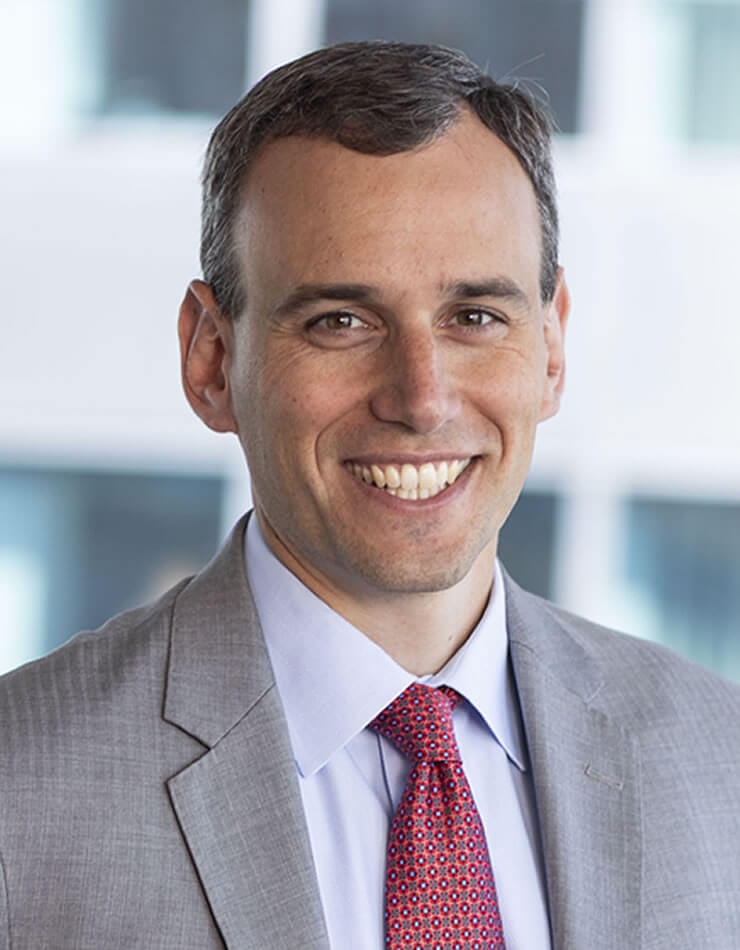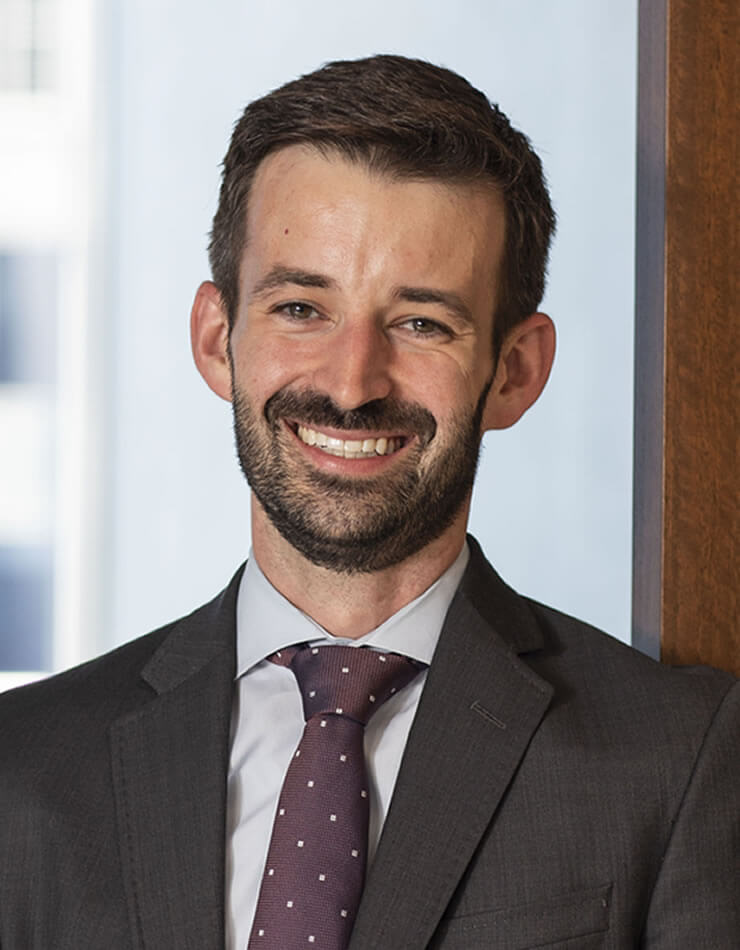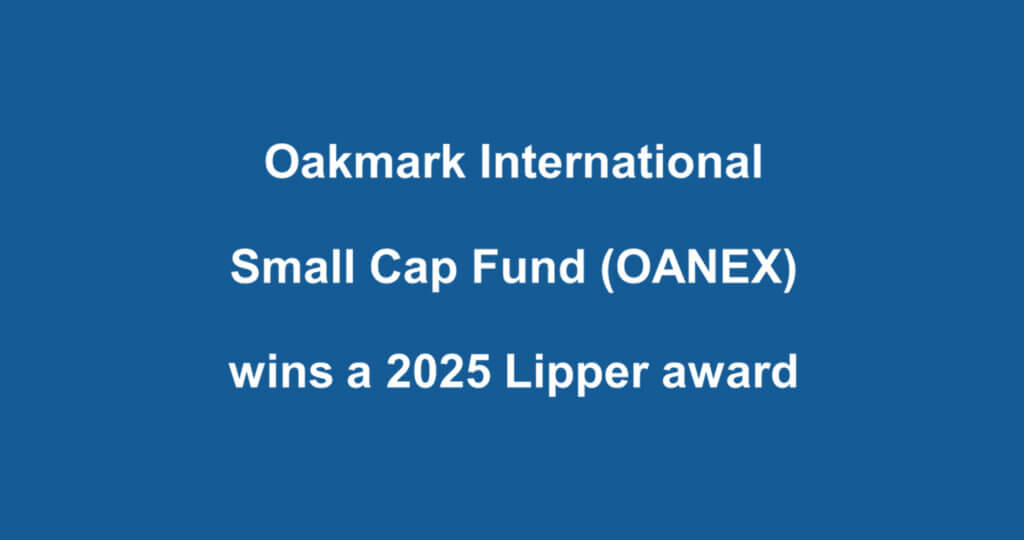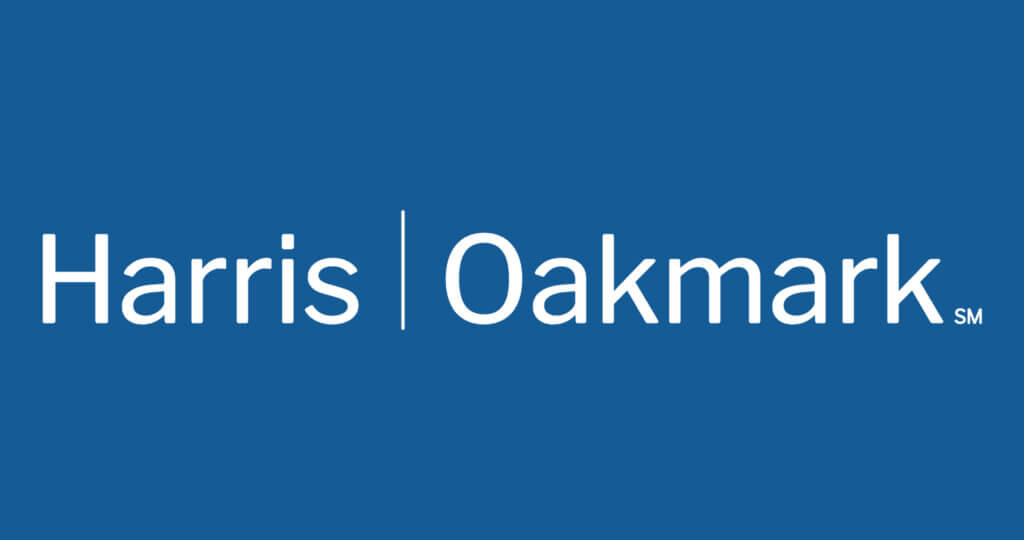Oakmark International Small Cap Fund – Investor Class
Average Annual Total Returns 09/30/20
Since Inception 11/01/95 8.00%
10-year 3.89%
5-year 2.74%
1-year -6.23%
3-month 8.32%
Net and Gross Expense Ratios as of 09/30/19 were 1.38%
Past performance is no guarantee of future results. The performance data quoted represents past performance. Current performance may be lower or higher than the performance data quoted. The investment return and principal value vary so that an investor’s shares when redeemed may be worth more or less than the original cost. To obtain the most recent month-end performance data, view it here.
The Oakmark International Small Cap Fund declined 6.2% for the fiscal year that ended September 30, compared to its benchmark, the MSCI World ex U.S. Small Cap Index, which returned 6.9% for the same period. The Fund also underperformed the benchmark for the recent quarter end, returning 8.3%, compared to the MSCI World ex U.S. Small Cap Index return of 10.1% for the period. Since the Fund’s inception in November 1995, it has returned an average of 8% per year.
Although we remain disappointed with the Fund’s underperformance, we are enthusiastic about the quality of the portfolio’s holdings and continue to believe the Fund is well positioned to generate attractive rates of return over mid- and long-term periods.
The top contributing stock for a second quarter in a row was Konecranes, the Finnish company that specializes in the manufacture and service of overhead cranes and lifting equipment. During the quarter, the company announced second-quarter earnings that were above expectations. Even though Covid-19 dampened the demand for Konecranes’ products and services, which resulted in a 14.2% drop in revenue, all three of the company’s divisions reported improved margins over the previous quarter, largely due to management’s significant cost reduction efforts. During the quarter, the company announced additional cost reductions and restructuring activities, which should further improve profitability. During the second quarter, Konecranes also enjoyed solid free cash flow generation, driven by resilient margins and significant working capital release. We believe the company remains an attractive investment and is well positioned for long-term growth and profitability. After the close of the quarter, Konecranes and Cargotec, a Finnish cargo handling machinery maker, announced plans to merge. The two companies expect that the merger will increase scale and generate at least EUR100 million of synergies. News of the merger sent the share price of Konecranes up sharply.
For the fiscal one-year period, the top contributing stock was Duerr, a German-based global mechanical and plant-engineering firm. Due to Covid-19, demand for Duerr’s customers’ products has fallen and, as a result, customers have needed less of the company’s aftermarket services. Duerr’s order intake and revenue have, therefore, declined. However, this drop in demand appears to have bottomed. In the second quarter, the company reported that demand has improved significantly since June. Duerr has also launched three separate and aggressive restructuring programs that combine to target EUR60 million in cost savings by 2021. In addition, the company’s free cash flow generation has improved significantly over the past several quarters and its balance sheet remains robust. We believe that management will build value for shareholders via restructuring efforts and that the rebound in end market demand will support higher earnings for the company.
The largest detractor to the Fund’s performance for both the quarter and the one-year period was ISS, a facilities services company headquartered in Denmark. ISS provides cleaning services, support services, property services, catering services and security. Before Covid-19, ISS suffered from a massive IT malware attack in early 2020 that disrupted operations and resulted in excess costs. Due to Covid-19, revenue declined by nearly 10% organically in the second quarter. The business segments most significantly impacted by Covid-19 were catering and above-base (work in excess of contract), and this revenue is falling away at a slightly higher margin than anticipated. Despite improving conditions, the near-term outlook remains uncertain and the company issued a rather wide guidance range for the 2020 fiscal year. That said, Covid-19 has significantly increased demand for the company’s deep cleaning and disinfection services, which could support revenues in the medium term. ISS has a rather indebted balance sheet, but thanks to the lack of financial covenants and high liquidity, the company should be able to navigate this difficult environment successfully. Although the current environment is more challenging than expected, we are optimistic that the appointment of the new CEO Jacob Aarup-Andersen, who started in September 2020, will provide the company with the fresh perspective it needs to improve its results. We believe ISS remains an attractive investment.
We initiated one new holding in the Fund this quarter: Link Group, an Australia-based firm that provides administration and operating support to a range of financial asset classes. The company’s offerings include pension administration to Australian superannuation funds, share registry and corporate actions, employee and executive share plan administration, fund administration, loan servicing, and property transaction administration.
We eliminated positions in ALS Limited (Australia) and Signature Aviation (U.K.) as both companies’ share price neared our estimate of intrinsic value. Metso recently completed a merger of its minerals division with Outotec to create Metso Outotec; this position remains in the Fund. The remaining division of Metso, flow control, was renamed Neles and sold during the quarter.
Geographically, we ended the quarter with approximately 70% of our holdings in Europe and the U.K., 10% in Asia, and 8% in Australasia. The remaining positions are in the Americas with 5% in Latin America (Mexico) and 6% in North America (Canada).
We continue to believe the Swiss franc remains overvalued versus the U.S. dollar and we ended September with hedges on 13% of the Fund’s franc exposure.
During this unprecedented year, we thank you for your continued confidence and support. We remain committed to finding attractive, undervalued foreign companies with management teams that are dedicated to building shareholder value.
The securities mentioned above comprise the following percentages of the Oakmark International Small Cap Fund’s total net assets as of 09/30/20: ALS Limited 0%, Cargotec 0%, Duerr 3.8%, ISS 2.5%, Konecranes 4.7%, Link Group 0.8%, Metso Outotec 2.6%, Neles 0% and Signature Aviation 0%. Portfolio holdings are subject to change without notice and are not intended as recommendations of individual stocks.
The MSCI World ex USA Small Cap Index (Net) is designed to measure performance of small-cap stocks across 22 of 23 Developed Markets (excluding the United States). The index covers approximately 14% of the free float-adjusted market capitalization in each country. This benchmark calculates reinvested dividends net of withholding taxes. This index is unmanaged and investors cannot invest directly in this index.
The Fund’s portfolio tends to be invested in a relatively small number of stocks. As a result, the appreciation or depreciation of any one security held by the Fund will have a greater impact on the Fund’s net asset value than it would if the Fund invested in a larger number of securities. Although that strategy has the potential to generate attractive returns over time, it also increases the Fund’s volatility.
The stocks of smaller companies often involve more risk than the stocks of larger companies. Stocks of small companies tend to be more volatile and have a smaller public market than stocks of larger companies. Small companies may have a shorter history of operations than larger companies, may not have as great an ability to raise additional capital and may have a less diversified product line, making them more susceptible to market pressure.
Investing in foreign securities presents risks that in some ways may be greater than U.S. investments. Those risks include: currency fluctuation; different regulation, accounting standards, trading practices and levels of available information; generally higher transaction costs; and political risks.
The percentages of hedge exposure of each foreign currency are calculated by dividing the market value of all same-currency forward contracts by the market value of the underlying equity exposure to that currency.
The information, data, analyses, and opinions presented herein (including current investment themes, the portfolio managers’ research and investment process, and portfolio characteristics) are for informational purposes only and represent the investments and views of the portfolio managers and Harris Associates L.P. as of the date written and are subject to change and may change based on market and other conditions and without notice. This content is not a recommendation of or an offer to buy or sell a security and is not warranted to be correct, complete or accurate.
Certain comments herein are based on current expectations and are considered “forward-looking statements”. These forward looking statements reflect assumptions and analyses made by the portfolio managers and Harris Associates L.P. based on their experience and perception of historical trends, current conditions, expected future developments, and other factors they believe are relevant. Actual future results are subject to a number of investment and other risks and may prove to be different from expectations. Readers are cautioned not to place undue reliance on the forward-looking statements.
All information provided is as of 09/30/2020 unless otherwise specified.











